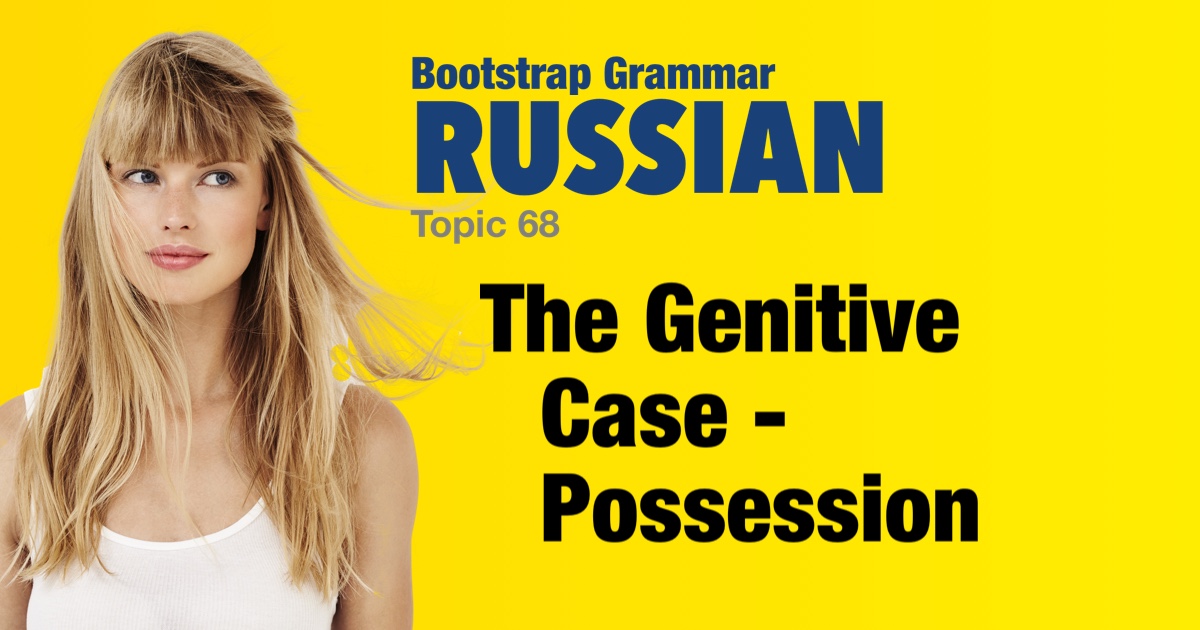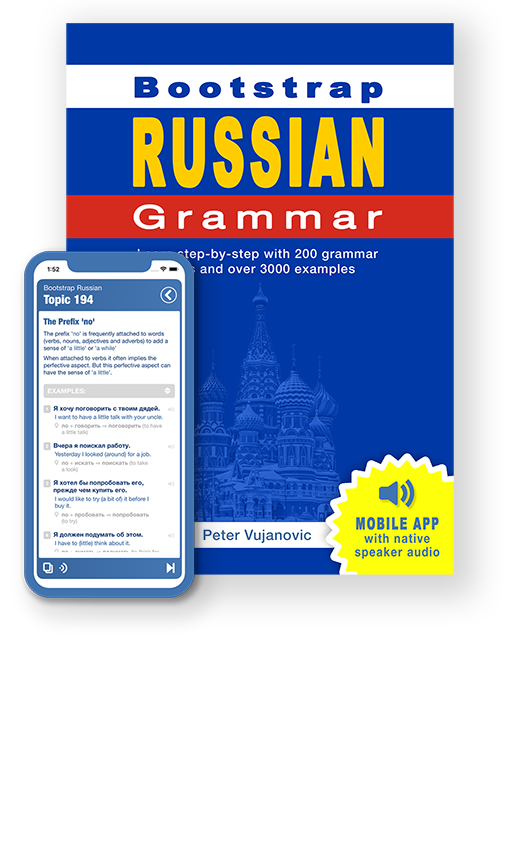Russian grammar - The Genitive Case - Possession |
|||
|
|||
Another very common use of the genitive case is to express possession using construction «у A B» meaning 'A has B' or 'In A's possession is B'. • The object noun /A/ is in the genitive case. • The subject noun /B/ is in the nominative case. If the possession is permanent or innate, the verb есть is commonly added so «у A есть B» is the pattern. The verb есть is also included when the actual existence of the subject /B/ is pertinent. Or in a question. In the past tense the verb был/была/были is used as per the gender and number of the subject B. |
| Examples: | |
|
У Ольги та книга.
Olga has that book.
|
|
|
У собаки кость.
The dog has a bone.
|
|
|
У ученика зеленая книга.
The student (female) has a green book.
|
|
|
У водителя машина?
Does the driver have a car?
|
|
|
У Алины был репетитор?
Did Alina have a tutor?
|
|
|
У учителя была красная ручка.
The teacher (female) had a red pen.
|
|
|
У мальчика болела голова.
The boy had a headache.
|
|
|
У Маргариты был хороший день.
Margarita had a good day.
|
|
|
Почему у Веры сегодня зонтик?
Why does Vera have an umbrella today?
|
|
|
У Ольги есть старший брат.
Olga has an older brother.
|
|
|
У Бориса большой нос.
Boris has a big nose.
|
|
|
У Эллы есть большая мечта.
Ella has a big (day)dream.
|
|
 |
|




